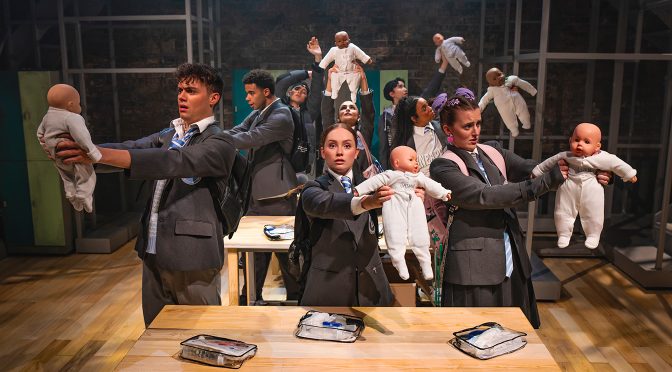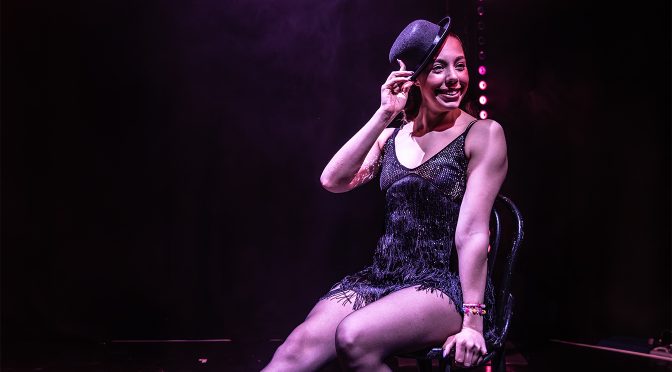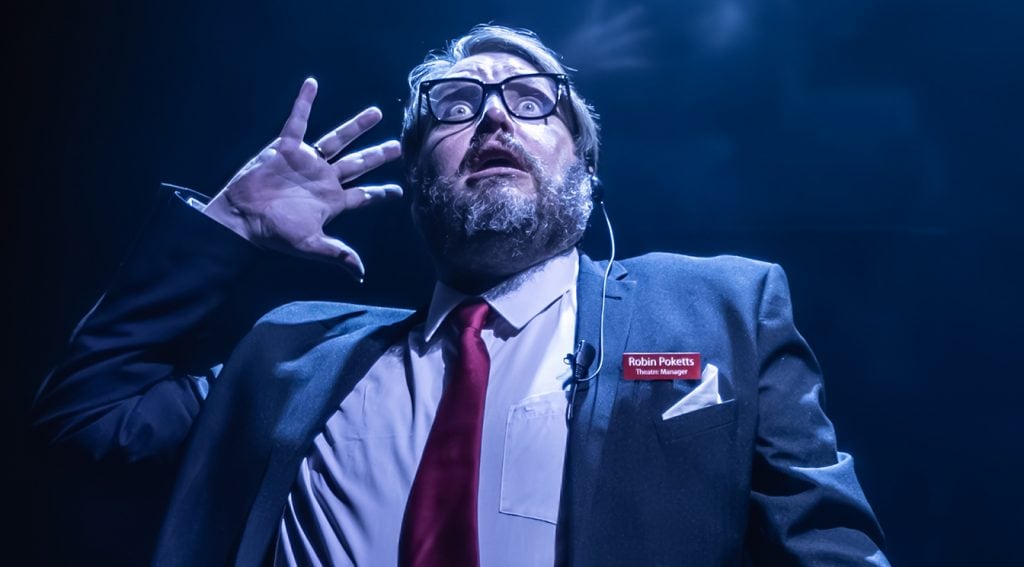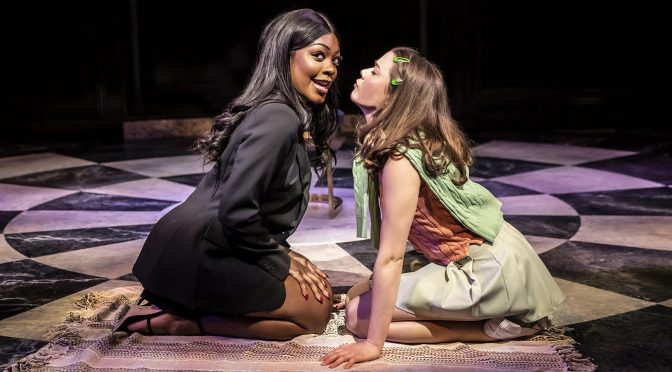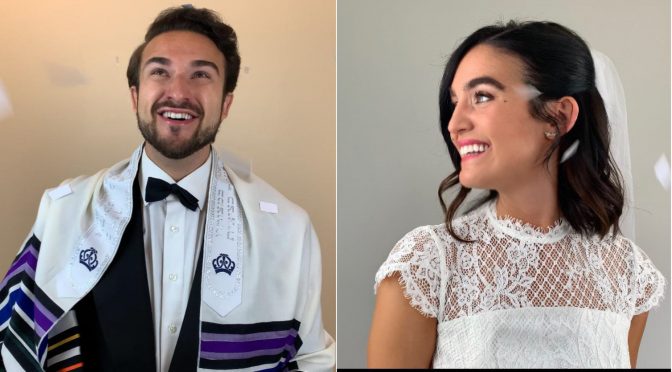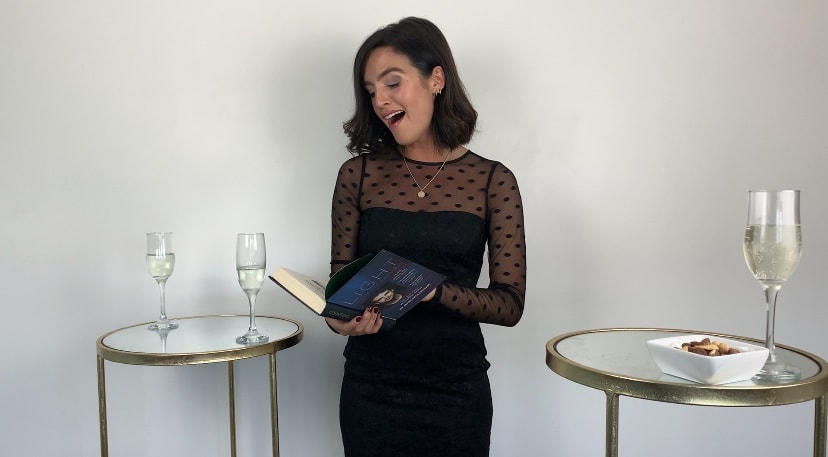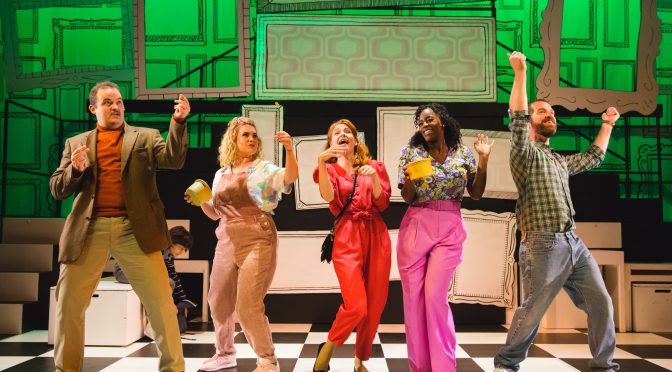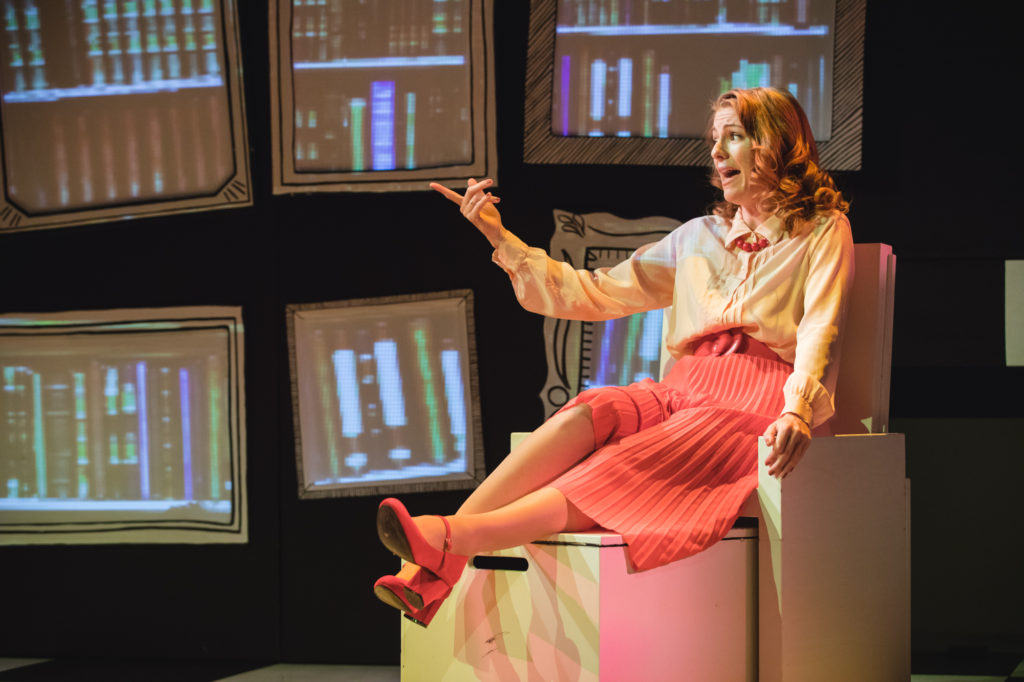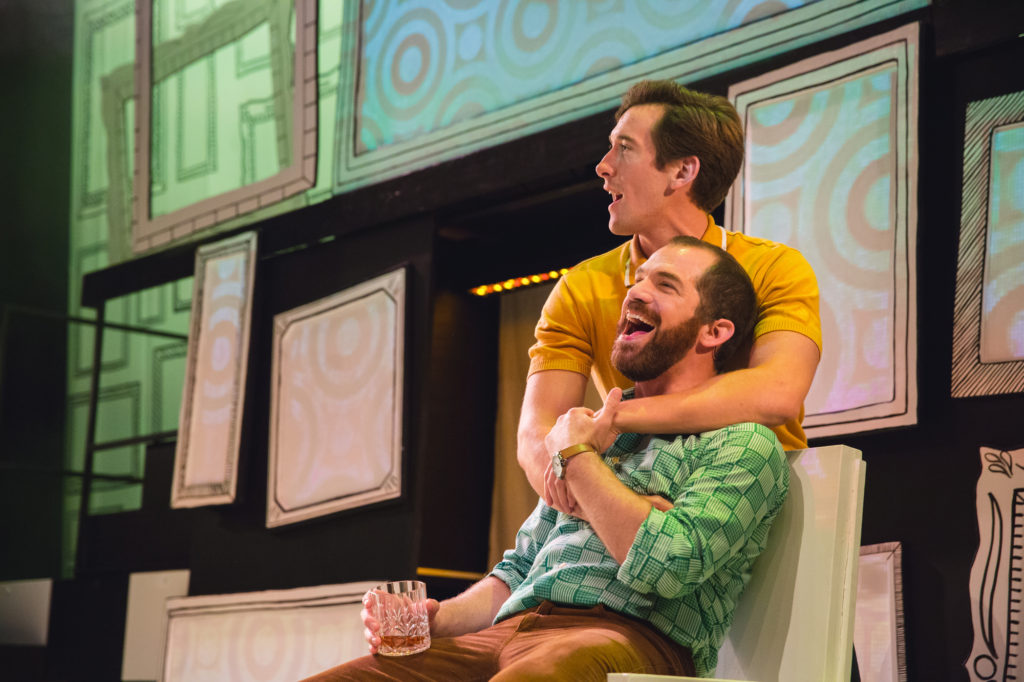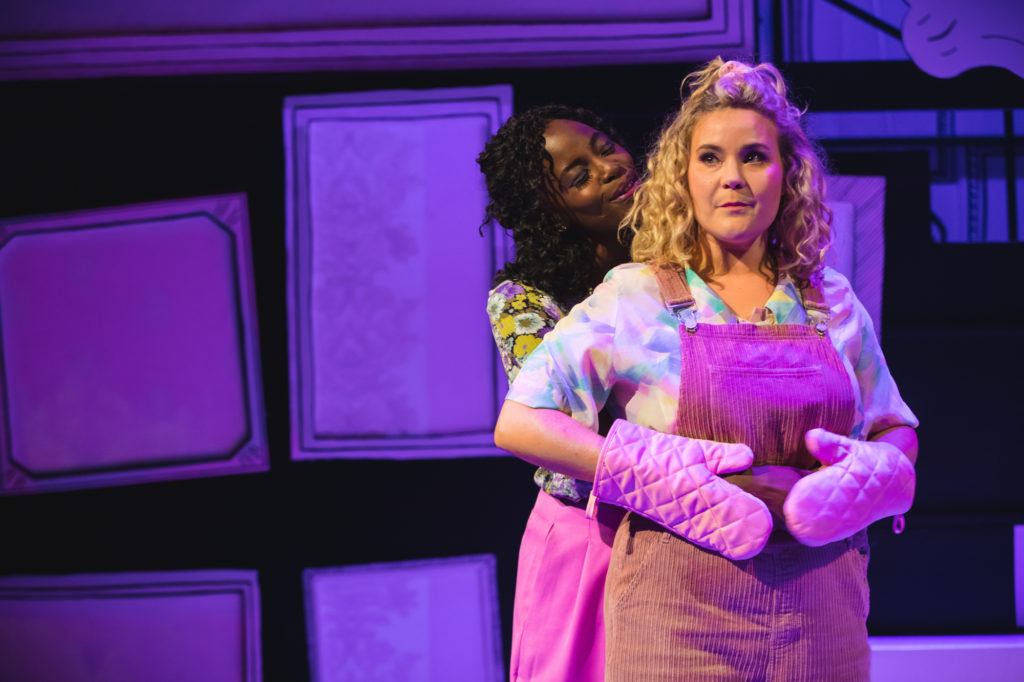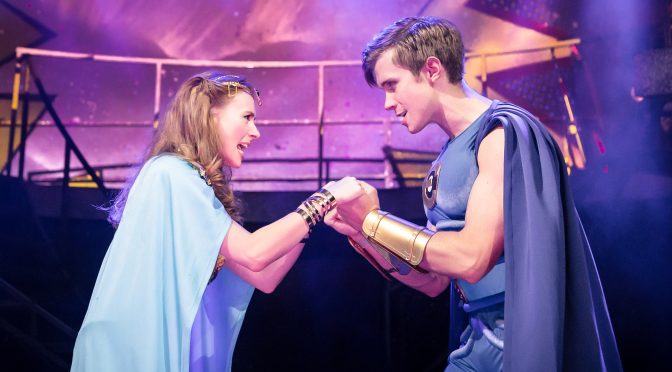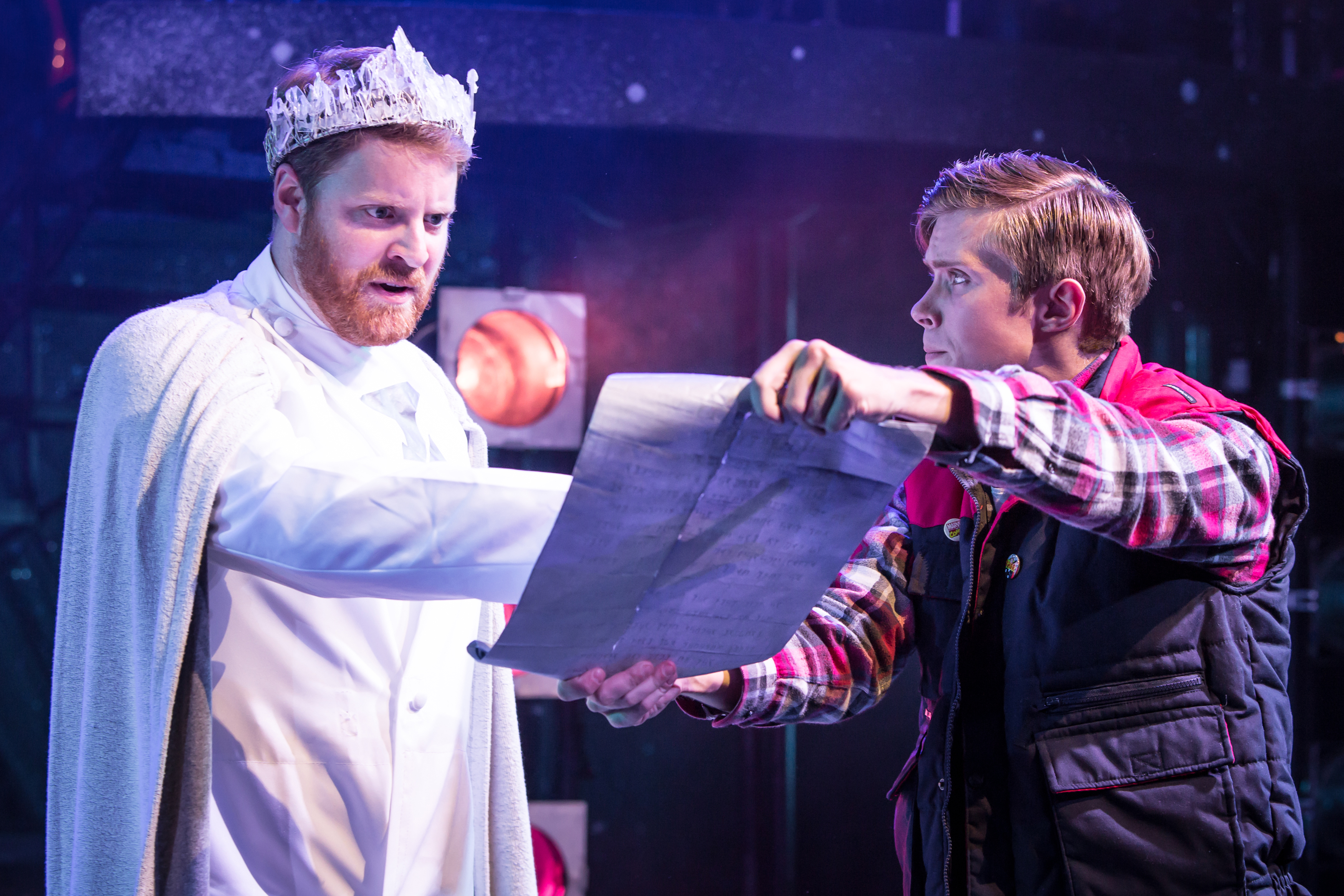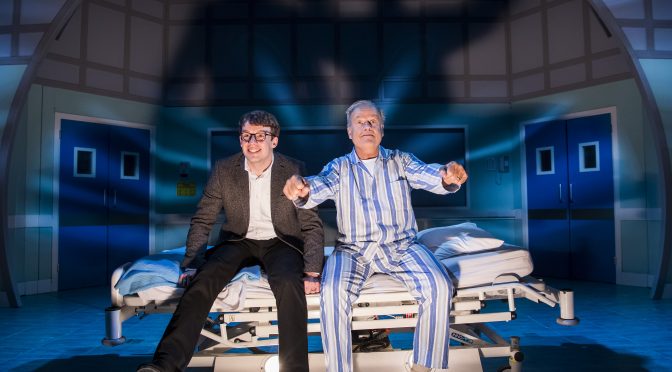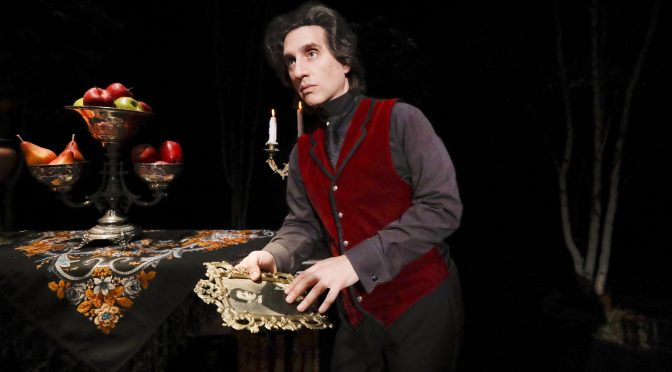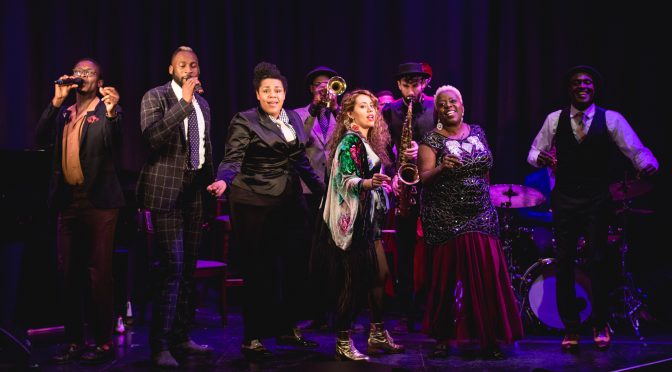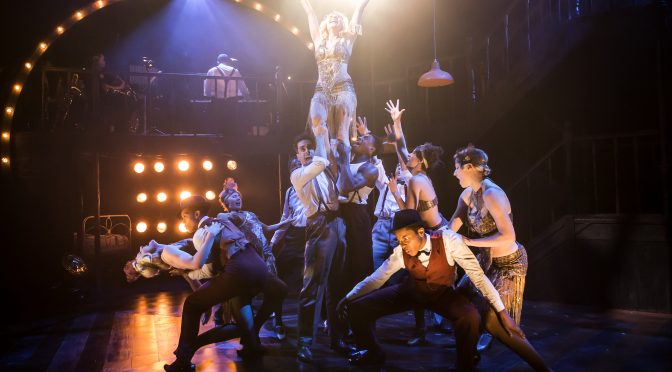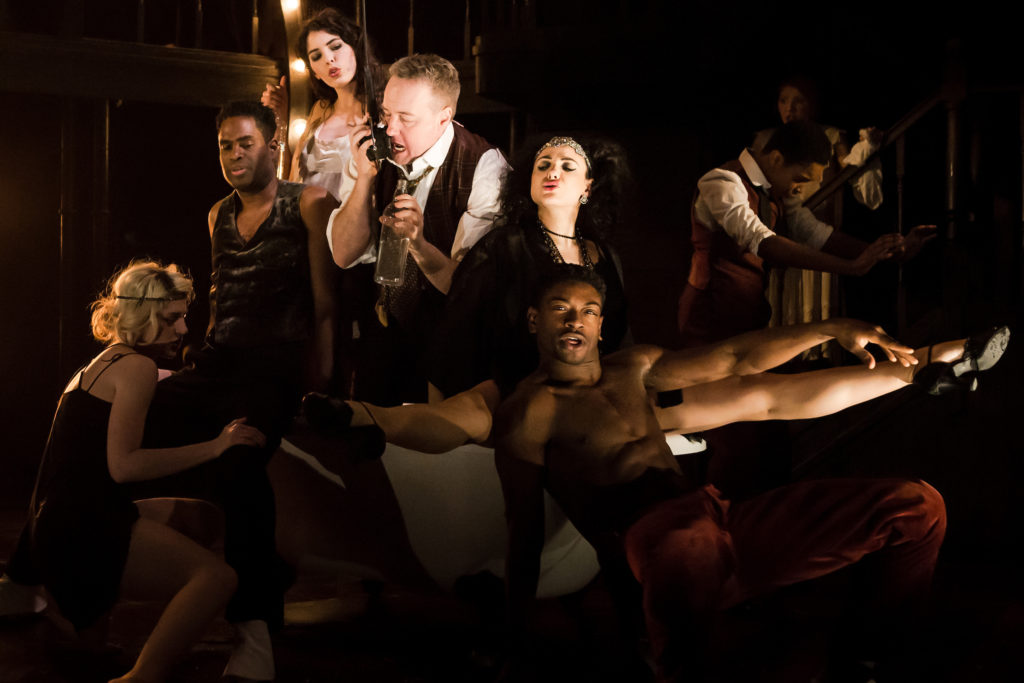Plenty of work has gone into Jack Godfrey and Martha Geelan’s musical that, mostly, pays off. If there’s only so much you can do with a coming-of-age story, Babies gets a lot from its small scenario: a group of schoolchildren are given electronic babies to look after and find out a lot about themselves as a result.
Geelan’s book, her first effort for a musical, is neat and complemented by her fine direction. With a firm structure, well-sketched characters are ably marshalled. And this class is full, making Babies a real ensemble affair, with everyone getting a moment in the spotlight and making sure there is plenty of enjoy. It’s easy to see a long life for the show at drama schools and showcases. But things do take a while to settle down, to give the audience a lead and to point towards something to learn.
Although the show is tongue in cheek throughout, moments when it is most knowing are best. References to a boy band are a big hit, while school swot Jasmine makes a great villain role for Lauren Conroy. But a romance between Toby and Jacob, although sweet and played well by Bradley Riches and Nathan Johnston, feels like a distraction. And what a lot of pressure these kids are under – so much loneliness and stress. You don’t doubt the sincerity and you can argue for realism, but none of it is a surprise and it is a touch oppressive.
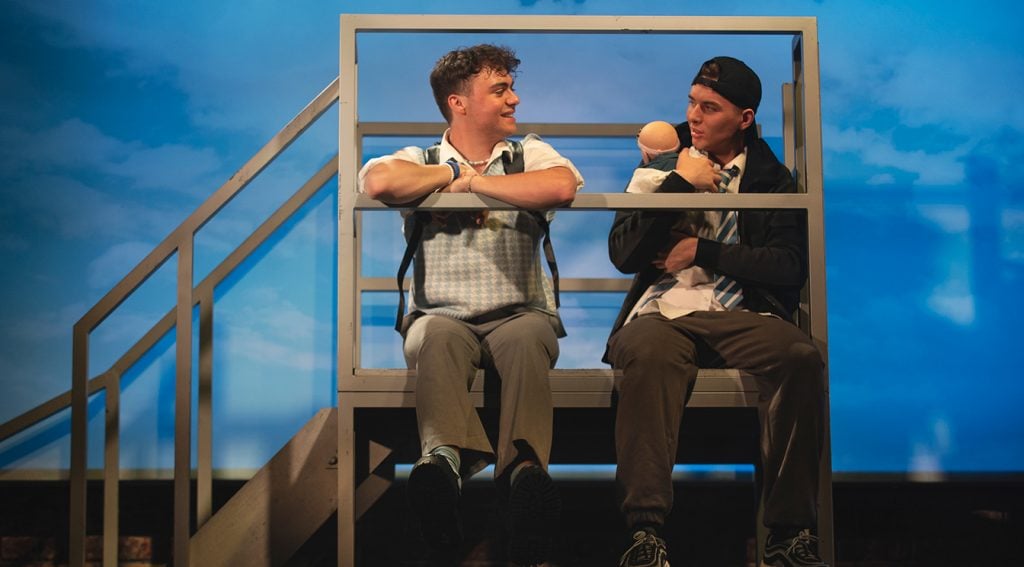
There are smart touches. But is the show missing a trick? Jokes for a slightly older audience (say, how your friends change when they have kids) could be elaborated. Rather, the focus is on the kids themselves – cleverly, no adults appear – which is fair enough, but the humour does suffer. Most of the time the performances outshine the comedy: Max Mulrenan and Jaina Brock-Patel are excellent as a young couple who handle their new baby in very different ways. And the anxious Lulu might well disappear if it weren’t for a strong performance from Lucy Carter.
Godfrey’s music is good. Importantly, more than one number is very catchy, and the music weaves together well. It’s a ‘proper’ musical and not just a collection of songs. It’s nearly all high energy – you might miss a change of pace – but it goes down well. The lyrics are less successful, through strong voices mask some of this, especially when the ensemble sings together.
We do settle, almost, on Leah, whose central drama is good and allows Zoë Athena to show her skills. The irony that Leah is trying to parent her mother is a touch obvious. But her story allows the show to develop towards the loose notion that friends are just as important as family (so time spent establishing everyone else wasn’t wasted). And there’s a reassuring takeaway at the end, as the kids accept that they aren’t ready to be adults.
If Babies is too niche to be a massive success, it works because of very talented young performers, clearly thrilled to be on stage, creating a terrific atmosphere. I sincerely hope it grows into something big.
Until 14 July 2024
Photos by Matt Crockett

